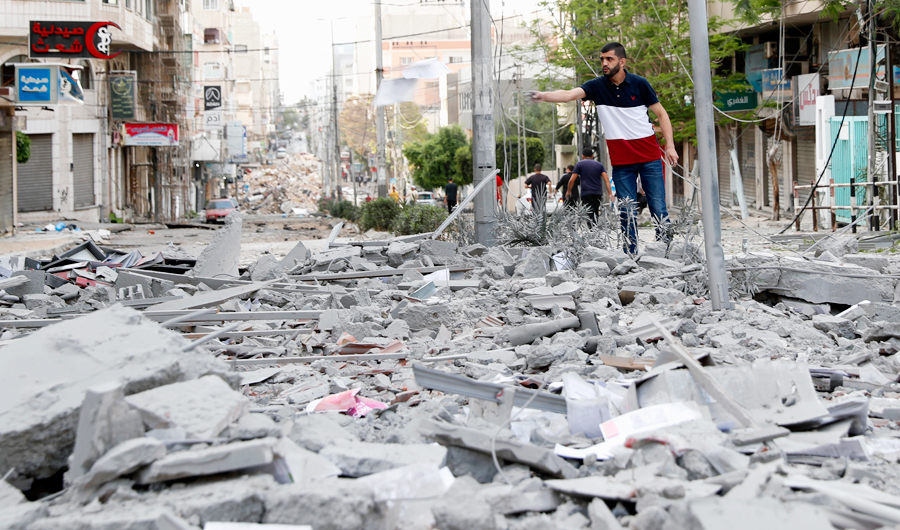Relentless Israeli bombing campaign keeps Gazans on tenterhooks
GAZA CITY: Heavy Israeli airstrikes claimed more lives in Gaza on Tuesday as tensions flared during Palestinian “day of anger” protests in Jerusalem and the occupied West Bank.
According to Gaza’s Health Ministry, Israel’s intense bombing campaign has killed 213 Palestinians, including 61 children, 36 women and 16 elderly.
Israeli munitions have wounded more than 1,400 people in Gaza during recent clashes with Hamas.
“I fear the night more than any other time, even if it is calm, I feel terrified as soon as the night starts,” said Hadyya Al-Sirsawi, a Gaza resident.
“The sounds of the bombing at night are very frightening. There is a continuous bombing, and it does not stop for a long time. My body shivers with the sound of everything, even if it is not bombing.” Al-Sirsawi, 32, a mother of three, Arab News.
In the night raids, 42 Palestinians died on Al-Wehda Street on Sunday.
Al-Sirsawi is afraid that she and her family will join the dead under the rubble, and that the Ministry of Health will list them as another statistic. “The ministry does not even mention names, we will be a number like others.”
She added: “I try hard every night to put my children to bed so that they sleep early, missing the frightening sounds of the constant nightly bombardment. Sometimes I succeed, sometimes they do not sleep, and sometimes they wake up to the sounds of bombing.”
Israeli warplanes continued to strike various areas in the Gaza Strip on Tuesday, including houses, agricultural plots and border areas.
The government media office in Gaza said that the damage to the strip has so far amounted to $243 million.
War is especially galling for children, even after its conclusion. “I try to keep my children busy all the time so that they are not psychologically affected by the bombing going on around them,” said Rawya Humaid, 38, a mother of two.
“During the daytime, we can withstand the sounds of the bombing, but the silence of the night makes the sounds more terrifying for me and my children,” Humaid told Arab News, adding: “I can’t sleep at night, I stay awake. In the early hours of the morning, I fell asleep for a few hours.”
During the night, Humaid keeps herself busy by watching the news, checking her Instagram account on her mobile, or chatting with her friends and relatives over WhatsApp.
Despite Arab and international efforts to end the war and return to the ceasefire agreement, Gazans do not expect a conclusion soon.
Humaid said: “I hear about the news when talking about the calm, but what we are witnessing, hearing and living is horror. There is no calm yet on the ground, which is the most important.
“There will be a ceasefire at any time. This will not last forever, but the pain, sadness and destruction will remain in the Gaza Strip. We will need years to restore our health and our psyche.”

US reaches out to Arab leaders on Israel, Gaza fightingTruce calls mount as Israel-Palestinian conflict rages on, two Thai workers killed



